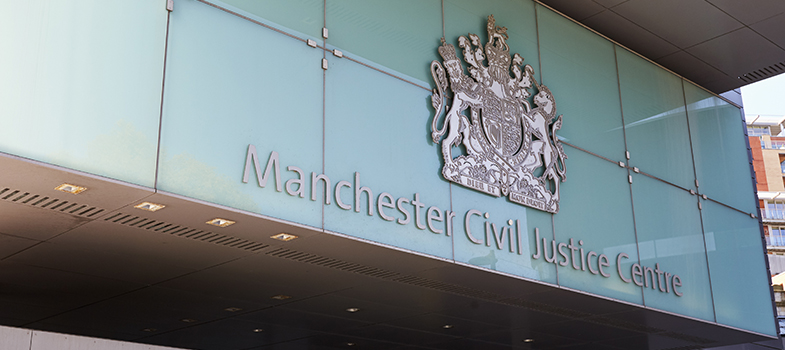Special measures
4.1 Introduction
Digital badge and Statement of Participation

This suite of training modules has been produced by Support Through Court and the Open Justice Centre (Open University Law School). It contains a series of modules to support volunteers in their work with members of the public who are involved in court proceedings.
These next seven shorter training modules contain practical advice and assistance on various aspects of client support. These include working with clients involved with special measures, Cafcass, improving your client interview skills, writing court statements, signposting to other organisations, and working with vulnerable clients.
There is an exclusive digital badge awarded for studying these shorter training modules. To gain this digital badge you need to complete all seven modules and pass the Modules 4–9 knowledge assessment.
Welcome to this training module on Special Measures. Special measures are arrangements the court makes to help vulnerable people take part in court proceedings. In your volunteering you may come across situations where clients require special measures to be put in place to assist them when attending court.
Special measures are designed to help vulnerable people in court. Used correctly, they can mitigate some of the anxiety a client may face and allow the client to participate more fully in proceedings or give evidence at a hearing. This training module will assist you in feeling more confident in situations where clients need special measures to take part in court proceedings.
Learning outcomes
This module will explain what special measures are available, when and how to apply for them and who to contact if they are not put in place for your client on the day of the hearing.
In this module you will learn about:
- What are special measures?
- Who can apply for them?
- Special Measures and domestic abuse.
- How do clients apply for special measures?
- What if special measures are not put in place on the day of the court hearing?
- How to support clients where the other party has requested special measures.
This module is one of a number of training modules to help Support Through Court volunteers when supporting clients. The modules all use the same case study to explore the different aspects of supporting clients effectively. We will be referring to this case study as we work though this module, so it may be helpful to remind yourself of the facts now. You may want to open this case study in a separate window (use Ctrl + click on the link) so you can refer back to it when needed. Find out more about the fictitious Johnson/ Smith family [Tip: hold Ctrl and click a link to open it in a new tab. (Hide tip)] and their situation.
During the module you may come across terminology which is unfamiliar to you. Some words are hyperlinked to the Glossary, so by hovering over the word you will be able to see its definition.
The module will consider issues around domestic abuse, as these are some of the cases where special measures may be required. Statistics around domestic abuse show that women are more likely to be victims of abuse than men. For this reason, during the module we will be using ‘she’ to denote a female victim of domestic abuse and ‘he’ to denote the male perpetrator, as this is the scenario you are most likely to come across in your volunteering.
However domestic abuse can involve men as victims and women as perpetrators, as well as abuse within same sex relationships. Support Through Court supports all clients regardless of their circumstances and so you may come across different forms of domestic abuse relationships in your volunteering. This training will assist you to support clients whatever their gender or sexual orientation and regardless if they are alleged to have abused or are making allegations.
Please note
This module deals with some sensitive issues including descriptions of domestic abuse. These training modules are not compulsory, but they are recommended. If you do not feel comfortable to start the module, or if you are affected by the material, or feel you are unable to undergo the training, then Support Through Court can help you. Please speak to your Service Manager when you are next in the office.
If you need immediate support over the phone you can call:
National Domestic Violence Helpline – 0808 200 247
Finally this module deals with some sensitive issues including domestic abuse. If you are affected by the material, Support Through Court can provide support for you. To access this support please speak to your Service Manager.
Give your opinion
How would you rate your understanding of special measures right now, before you start this module? Submit your opinion.
